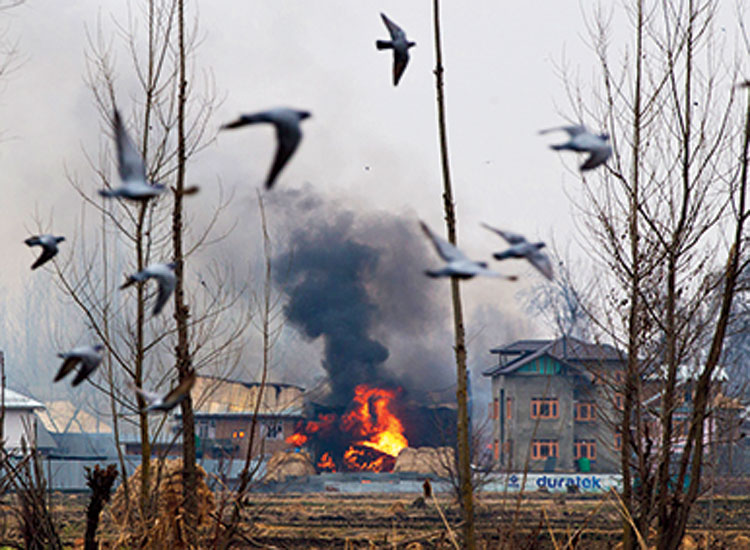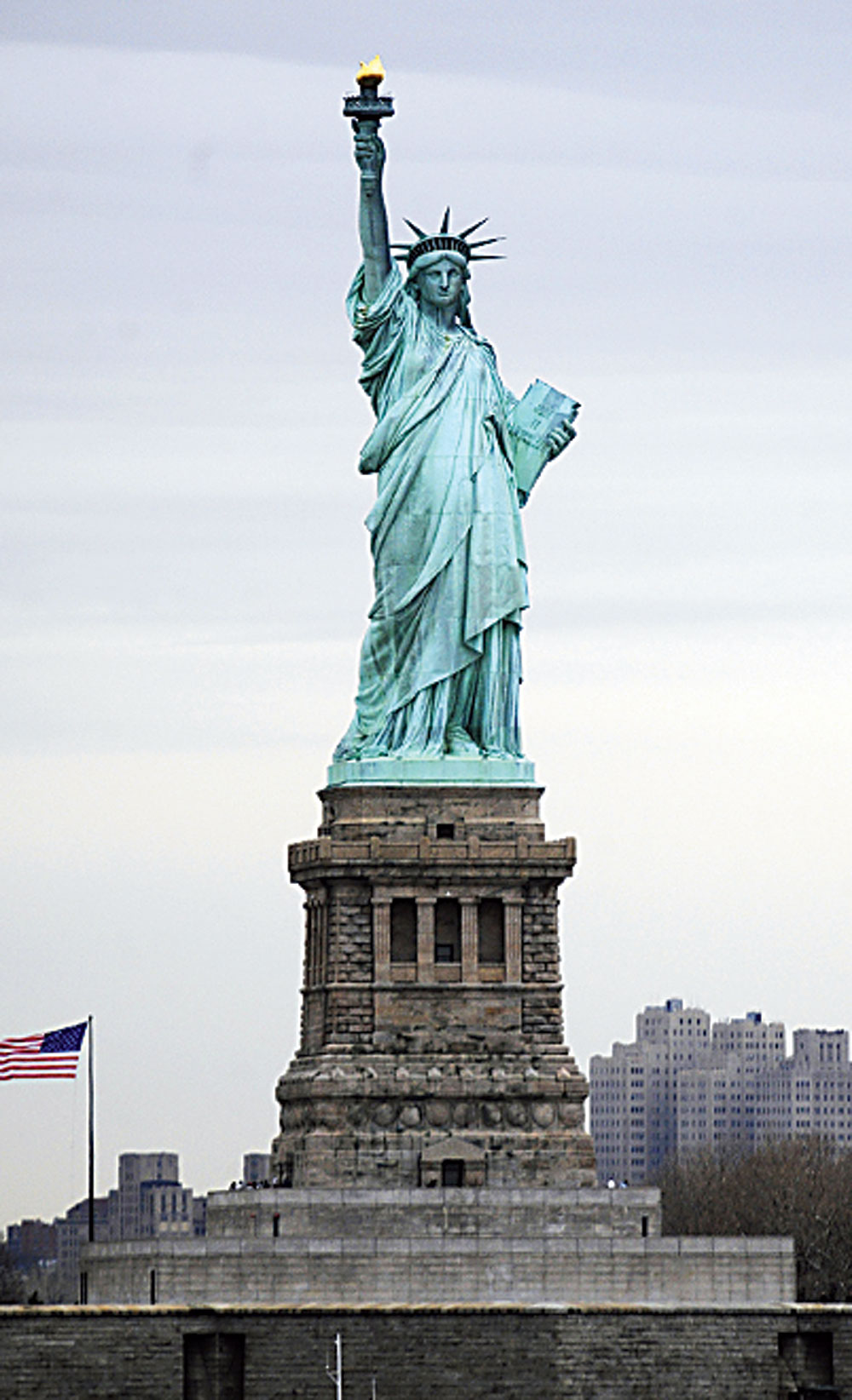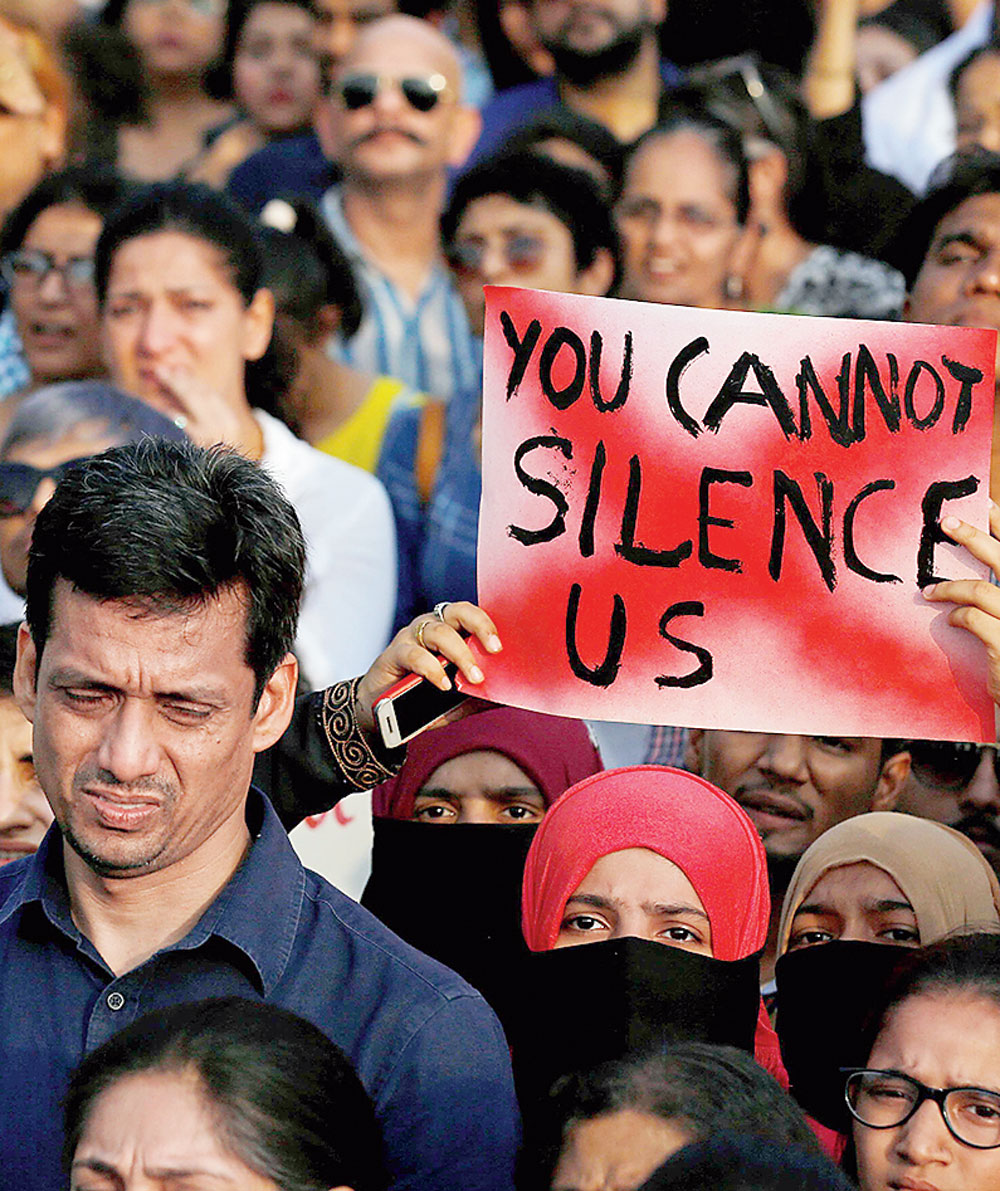The author is a literary critic and a cultural activist ganesh_devy@yahoo.com
Even at the best of times the inflow of international news leaves Indians cold, barring the news of high profile sport or the final round of American elections. In times such as these, when the people of India are entirely engrossed in the national elections, the news from outside India looks even more remote. Yet, two incidents need mention as they hold up a mirror for us too. One of these two is from Poland where a right-wing national weekly had a front-page story on ‘how to recognize a Jew’. The Tylko Polska (Only Poland) detailed methods to be used for identifying Jews by names, physical features, personality traits and more. The story caused disgust and received an appropriate response of condemnation in political circles. It did; nonetheless, the story was there. Surely, as news writers know it well, there were readers who wanted to see it appear. The rise of the right wing in Europe, even in the countries that have not long back faced the Holocaust and the brutalities of Auschwitz, is no longer just an apprehension but a spectre. It is universally known that public memory is short. The other story comes from New Zealand where an Australian zealot has butchered innocent persons, sullying the quiet and amity in that country. The rise of the Right — the spread of violence and hatred, assaults on decency and the decline of democracies — is a phenomenon that has been fast enveloping the world.
During Margaret Thatcher’s regime, the conservative British habits of mind made England believe that there would be some let-up in the government’s anti-poor policies. That has not happened during the last four decades. After the dismantling of the former Union of Soviet Socialist Republics, many had hoped that Russia would actually become a welfare State prompted by an open society. That hope is dead a good quarter of a century. An economically compounded Europe was initially seen as the transformed future of the nation state, and the brief spell of Euro-communism was seen as the rebirth of the idea of equality. Far from it; at present nearly a dozen European countries are experiencing a rapid rise of the political right-wing influence. One had hoped that long wars in Iraq, Iran and Afghanistan would end by generating new models of balance of power. Instead, they resulted in spawning the ugly face of militant theocracies and a range of non-State formations thriving on terror and violence. The killing of 17 journalists in Afghanistan in just one year requires no further comment. The world today looks more sordid, far more terrifying and unsettled than ever before. The sphere of influence of the ideas of peace, amity, evenly shared progress, reason, balance and restraint has been continuously shrinking. It is as if, like the great economic depression forming the prelude to the Second World War, there is a kind of a great political depression presenting itself to the community of nations as a prelude for something terrible to come.
The 1980s brought a fleeting vision of the future world as a kind of an extended single nation. Increased food sufficiency, better transport and oil tracking, more easily accessible healthcare and the promise of free flow of information were in the background of the German unification. In our country, those years were marked with the telecommunications and television revolution. Despotic rules and dictatorships, where they existed, had started looking like expired ideas by the mid-80s. Liberal economic ideas were becoming ready to free the spirit of enterprise and creativity and loosen the stifling regimes, making them supple and flexible. The fear of nuclear wars had started evaporating like some forgotten nightmare. The world thought that the future wars would be wars on malnutrition, disease and illiteracy. International agencies were getting ready to spell out their agendas for the Millennium Development Goals and ‘X for All’ kind of collaborative programmes. However, through the last three decades the mood has changed, changed altogether and, as W.B. Yeats said a century ago, “a terrible beauty is born”.
There is a definition of democracy which quips ‘democracy is a rumour not as yet disproved’. In our time, it is indeed becoming only a rumour, in Chile, Russia, the United States of America, Nigeria, Egypt and even in our dear own country. During the last few years, the world over there has been an inexplicable rise of an anti-democratic sentiment. This is explained by Left-leaning thinkers as the capture of the State by the corporate. Gandhians explain this as a predictable consequence of unchecked greed. Neo-liberals explain this as a passing phase of the clash between technocratic ethics — ‘transparency’ and ‘fast-growth’ — and the political order prone to ‘populist’ economic drives. There are also explanations stressing the deviant personality traits of individuals, whether Donald Trump, Recep Erdogan or Narendra Modi. What is difficult to explain is why there are so many of them and all at the same time. George Santayana had described his times as the world ‘on a moral holiday’. Following him, one can probably say that the world today appears to be ‘on a political holiday’. And that brings me back to the summer of 2019 in India.
Considering the destruction of institutions and the disregard of the Constitution during the last five years, the key words for the Lok Sabha elections should have been ‘democracy’, ‘freedom of expression’, ‘equality before law’, ‘Constitution’, ‘peaceful relations with neighbours’ and ‘voice of the marginalized’. Instead, most TV channels and many print journals have been over-busy in promoting polarization, machismo and chest-thumping. In spite of the code of conduct, the war-cries are still sounding in the background of elections this time. Any war is undesirable; and an armed conflict between two nuclear powers is most scary. The destructive power of their arsenal and the irreparable damage it can cause to life now and for a long time to come cannot even be imagined. The Pulwama attack was absolutely detestable. Like millions of other Indians, I condemn it. But, to use the air-strike on a terror training camp as political fodder is to demean political discourse.
To blame only the political parties would be off the point here. A substantial part of the responsibility goes to all of us, the people, media, intellectuals and activists. If we, as a nation, do not use the elections as our precious opportunity of speaking to the powers through our votes, if we neglect ‘writing to the Editor’, we too would have failed our precious and already weakened democracy. Hubris, arrogance, false propaganda and lies are the weapons with which the Trumps of the world are trying to bend the idea of democracy. I think it is necessary for the citizenry to refuse to bend and crawl, refuse to brush aside the pain of pauperized farmers and jobless youth. This time, just as the Lok Sabha elections are a contest between political parties, they are also between those who want to rubbish democracy and those who value it. Citizens have to remember that, in spite of the seductive propaganda and intimidating chest-thumping by self-styled superheroes in our public life, our taking a political holiday can send India back by several decades. Let us all vote for peace and for the other wars against hatred, inequality, fear and deprivation. We all owe it to the great idea of democracy.












